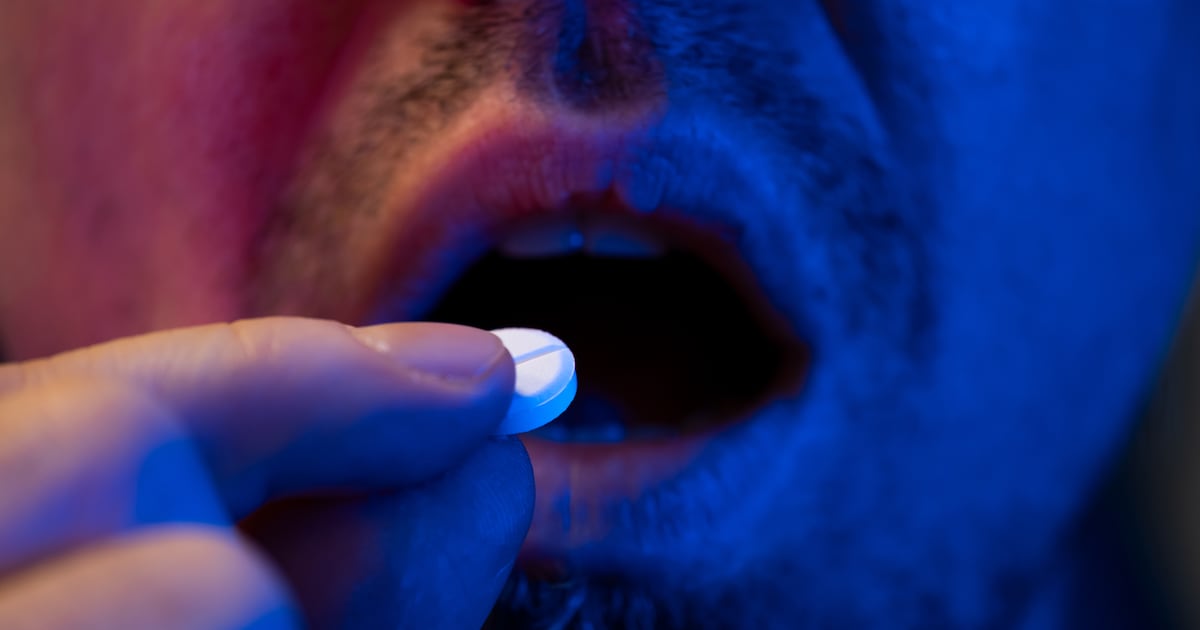An MDMA tablet containing 312mg of the drug – the highest dosage ever seen in Ireland – was identified at Electric Picnic as part of a HSE initiative to track drug trends and offer confidential support to drug users.
The tablet was one of 110 drug samples voluntarily submitted through the HSE programme which offered “free and confidential back-of-house drug-checking” at the Co Laois music festival in August.
Trained volunteers working in the two drugs.ie tents and medical spaces identified MDMA (commonly known as ecstasy), cocaine and ketamine among the samples submitted.
The programme issued an HSE drug alert to the phones of all attendees, through the festival app, when it identified a pill containing up to 300mg, three times the adult dose, through the testing.
A pill containing that level of MDMA could kill a person, said HSE clinical lead of addiction services Prof Eamon Keenan. “It’s over three times the normal dose and can have fatal consequences. An individual can experience overheating, blood pressure can go up, breathing is affected, it could cause cardiac problems, everything goes into overdrive,” Prof Keenan told The Irish Times.
“It’s the highest level we’ve ever seen in Ireland, that’s a big concern. The drug market is changing across Europe and we’re seeing more diverse and potent substances emerging on to the market.”
Last year, the HSE’s drug-checking programme at big music events found 39 per cent of all pills were greater than 200mg in strength, compared to the 19 per cent strength tested in 2023.
Back-of-house checking at festivals – which allows a user to anonymously deposit a drug sample for analysis – enables medical experts to better understand which drugs are circulating, said Prof Keenan. Front-of-house testing, where users hand over drugs to technicians at events and receive results, which operates in some other European countries, is not currently offered in the Republic and would require legislative changes, he said.
“Obviously we would prefer people didn’t take drugs, and it’s safer not to take drugs. But the reality is, drugs are circulating.
“This is a method where we can identify what’s in our drugs and get out risk communications.” In one case this year, MDMA tested contained no active ingredient at all, he added.
The HSE’s Safer Nightlife Harm Reduction Programme which piloted at the Electric Picnic in 2022, which is now in its fourth year, is the first of its kind in Ireland. It enables HSE testers to examine the chemical make-up of drugs submitted anonymously to designated drop-off receptacles.
In previous years, the project has issued online alerts about high-strength MDMA linked to medical emergencies and the synthetic stimulant 2-CMC being sold as cocaine without people knowing. It also issued alerts regarding 100 per cent pure cocaine – which is very rare but can lead to extreme medical situations or fatalities.
A survey conducted by the EU Drugs Agency earlier this year, which tested wastewater across 128 European cities for illicit drug levels, identified high levels of MDMA and ketamine in Irish wastewater when compared to other European cities. It found medium levels of cannabis in Irish wastewater and low levels of amphetamine.
“This all helps build the picture of how the market is changing,” said Prof Keenan. “We now know cocaine is a serious problem. When you talk to people they have this romantic idea of cocaine, maybe from films and books. The reality is we see many people with significant physical and mental health problems because of cocaine addiction.”
Prof Keenan also warned on Wednesday of an increase in circulation of new synthetic compounds in edibles, liquids and plant materials which can be used in vapes.
In July, synthetic cannabinoid HHC or Hexahydrocannabinol, which has similar effects to cannabis and has been linked with episodes of psychosis and hospitalisation, was classified as an illegal drug by the Government. However, Prof Keenan warned the substance may still be available.
“Ever since the ban of HHC, products are being sold which say they produce a calmness or a wellness… but it doesn’t say exactly what’s in them,” he told RTÉ’s Today with Claire Byrne show.
“There’s a wide variety of synthetic cannabinoids out there, some of which are extremely potent and much more likely to cause mental health problems and difficulties.
“We really can’t take our eye off the ball in relation to this, just that HHC has now been banned. That doesn’t necessarily mean to say that everything is fine.”

